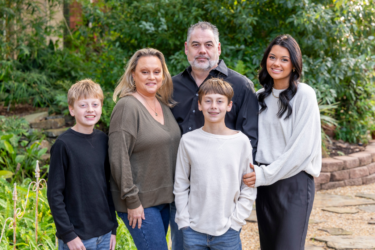We've seen it on the news: a daycare worker caught on video abusing a child in her care. It's every parent's worst nightmare. According to the National Children's Alliance, nearly 700,000 American children are victims of abuse or neglect each year with 1,670 deaths in 2015 alone. In 90 percent of cases, child abuse or neglect is in the hands of a parent or family member.
Statistics on abuse and neglect by daycare providers alone isn't readily available. Some experts estimate approximately five percent of child abuse and neglect cases occur at daycare homes and facilities. If that percentage is accurate, it equates to about 35,000 American children abused or neglected in daycare homes and facilities each year.
Given these staggering statistics, how can parents ensure their child's safety when in the care of others? The first crucial step is thoroughly investigating and interviewing daycare facilities and providers before sending your child. Once your child begins daycare, you should also know the signs of abuse to be on the lookout for.
FINDING THE RIGHT DAYCARE
There are several steps parents can take before sending their child to a new daycare. If possible, try to visit several so you can make comparisons.
Is the daycare licensed? The first thing to look for is whether a daycare facility or home is licensed. Licensing is required in most states if the caregiver isn't a relative. Visit your state licensing and regulatory affairs department website to look up a daycare to ensure its license is up to date.
Is the daycare in compliance? While you're at your state's website, find out what your state's requirements are for daycare homes and centers, so you know what to expect. You'll want to keep this information handy when you tour the home or facility, so you know whether the daycare you're considering complies.
THE DAYCARE TOUR
A tour of the daycare will tell you a lot. Don't be shy about asking for a full tour. Think of it, however, as an inspection. Look for the following:
- Are all areas that are used by or accessible to children thoroughly childproofed?
- Are there safety plugs in all electrical outlets?
- Are stairways securely blocked off?
- Do kitchen and bathroom cabinets have child locks?
- Do exterior doors have safety locks up high?
- Is there a pool or hot tub in the area? If so, it should be completely fenced off with a childproof gate.
- Is there a fenced outdoor play area?
- Is it tidy aside from toys children are playing with?
- Do the bathroom and kitchen appear sanitary?
- Is the heating or cooling set at a comfortable temperature?
- Are there adequate toys and equipment for the number and ages of children?
- Do cribs, playpens, and other baby equipment meet safety standards?
- Is the number of children present within the capacity the daycare is licensed for
- Does the daycare meet the appropriate ratio of caregivers to children?
- Does it smell clean? Or do you smell neglected diapers or cigarette smoke?
- Are the children happy and content?
- Is there ample space for the children to play?
- How does the staff interact with the children?
THE DAYCARE INTERVIEW
This is another and equally important step to finding a quality loving environment for your child. Take this list of questions with you and add your own questions as well:
- What is the maximum number of children you have in your care at any time?
- What are the age ranges of the children you care for?
- What types of activities do you do with the children?
- Are meals and snacks provided? If so, of what do they consist? Also, what time do the children eat?
- Can I drop in unannounced?
- How do you handle discipline?
- Do you ever take children in the car? If so, are there enough child seats and seat belts for each child?
- Are there other members living in your home or outside staff who will care for the children? If so, who are they and what are their ages?
- How are naps handled?
- What is the experience or education of the daycare provider and staff?
- What is your policy when a child is sick?
- Can I talk to the parents of other children you care for?
- Is video available so I can peek in at my child from my computer or phone? ■
Is My Child Being Abused?
Parents must take into account what they know about their child combined with all the other factors to make an educated guess. When in doubt, it's best to err on the side of caution. The following are signs of abuse to watch for in your child. Be on the alert if your child:
- suddenly becomes fussy or withdrawn.
- gets upset when being left at daycare or with a sitter.
- has injuries such as bumps, bruises, bites, scratches, cuts, burns, or broken bones. This is particularly concerning if it occurs in a baby that isn't yet walking.
- has regressed in skills already learned such as walking or potty training.
- cries frequently.
- acts out suddenly or in an Unusual way.
- has night terrors.
- looks dazed.
- flinches at sudden movement.
- complains of unexplained aches and pains.
- has any unusual signs in the genital area such as itching, bruising, bleeding, or difficulty walking or sitting.
- expresses unusual curiosity in or knowledge of sex.
- shows inappropriate affection; or
- often brings home gifts from a caregiver.
If you suspect something is amiss, talk with your child in a calm, reassuring tone. If you have any concern something is wrong, don't send your child back until you've thoroughly investigated the situation and are confident there's been no abuse. Have your child's doctor examine your child for any signs of physical or sexual abuse you may have missed. If you suspect abuse may have occurred, make a report of your suspicion so it can be thoroughly investigated. Find out how to make a report in your state at the following website:
daycareabuse.com/how-to-report





